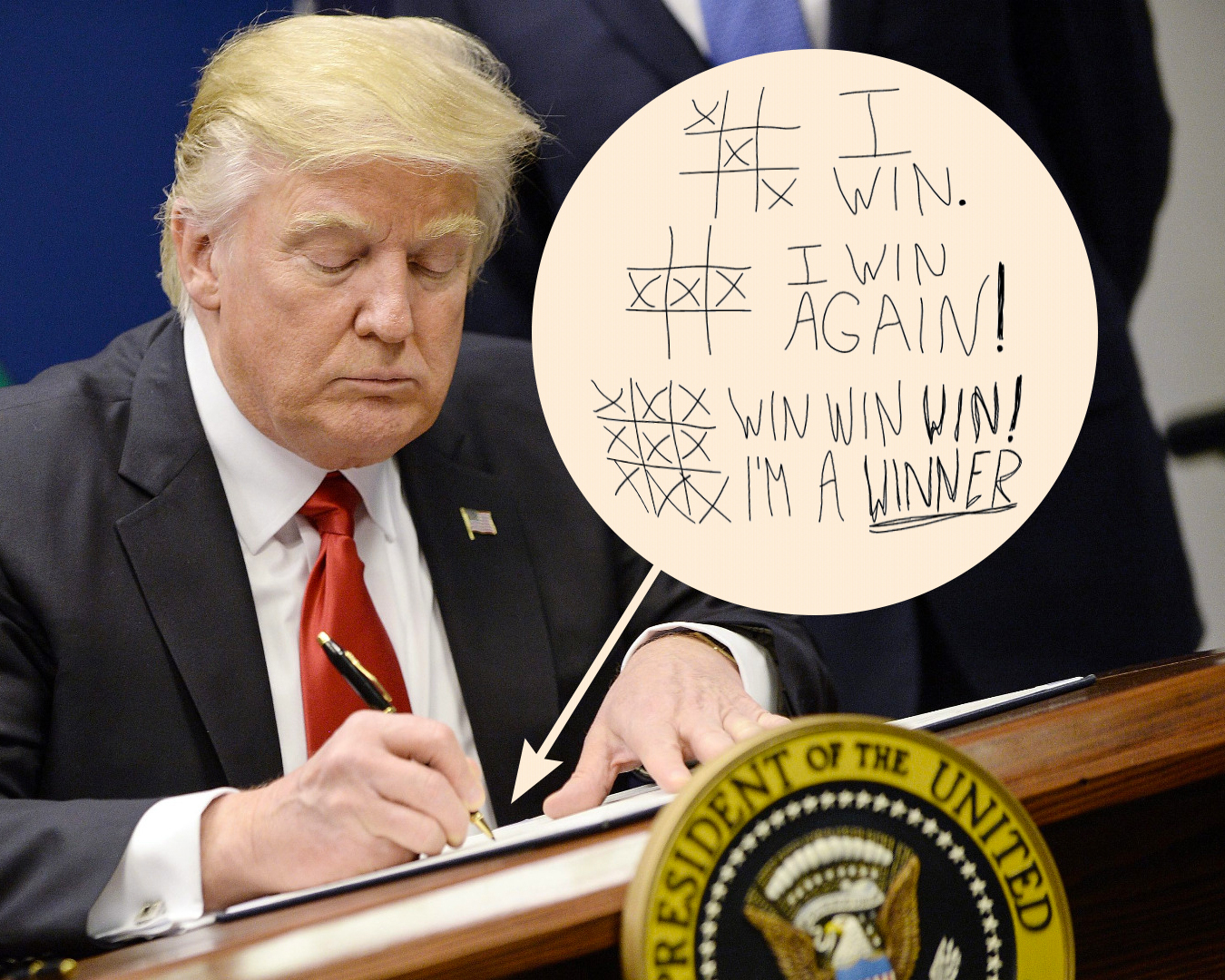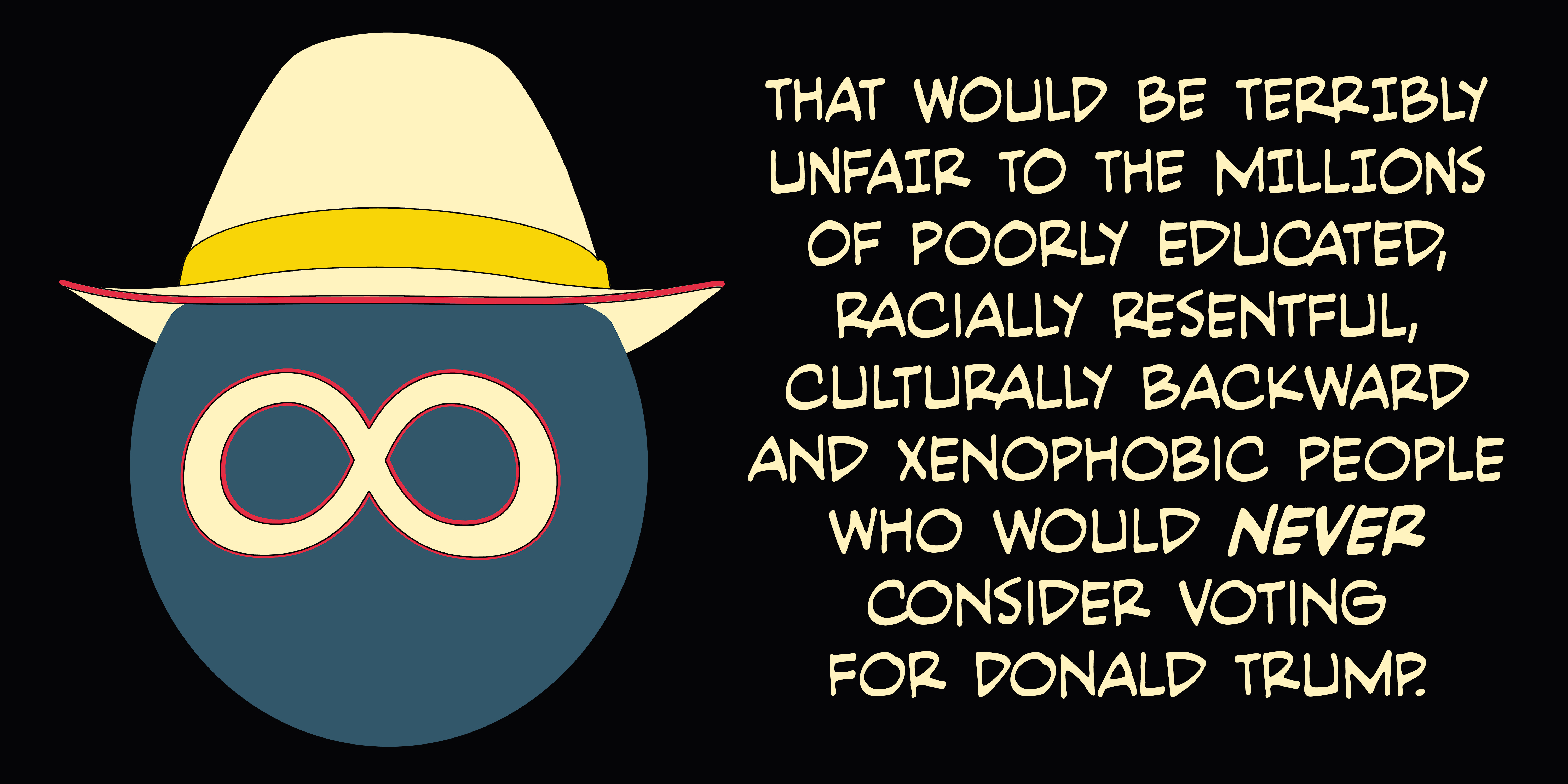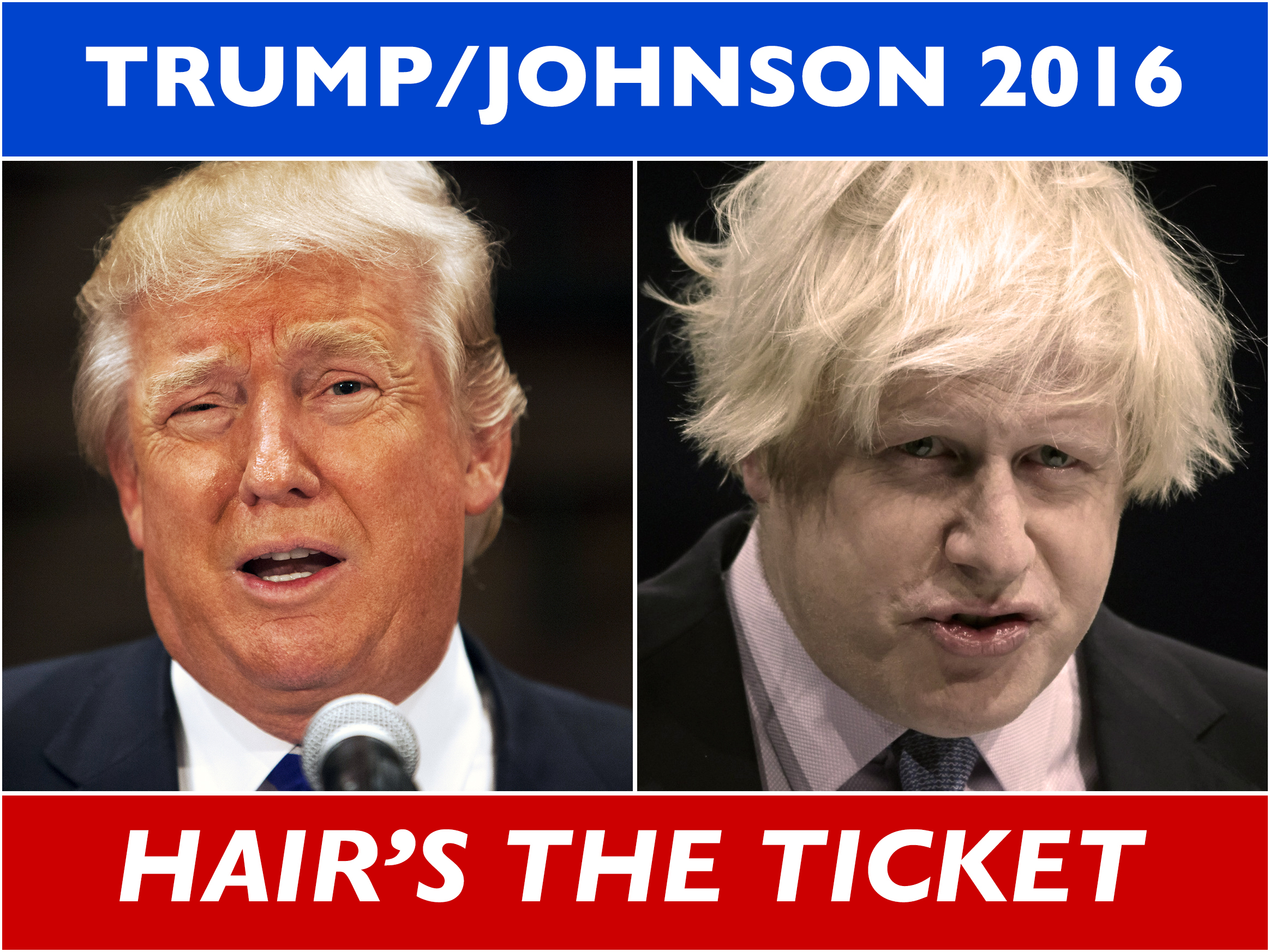
trump
Post-election outreach to clients—what’s really at stake?
I’ve been asked what it was that made me so uncomfortable about putting out a standard post-election memorandum to clients describing potential regulatory changes under the new Administration. I’ll get to that in a moment. Now, it’s time for us to heal the bitter divisions, join together as one nation, and consider how we defend our country, our clients and ourselves from the dangerous tyrant we just elected President.
Donald Trump—President Donald Trump!—threatens national security and menaces the rule of law. By his own statements, anyone can see that the man stands far outside the norms that have guided our democracy and its leaders for 240 years. He’s functionally illiterate and may be uneducable. He appears to have a range of diagnosable personality disorders.
This is not just me on a rant. This is a widespread, bipartisan, across-the-spectrum opinion. The only thing the people who hold this view have in common is an ability to see a picture of the national interest bigger than the potential for career advancement or revenue opportunities.
And yet here we are, only three days after the election and already entering the “normalization” phase: the President-elect sits down with the President, the First Lady-elect has tea with the First Lady, there is news of transition teams and cabinet appointments, and law firms talk to clients about legislative and policy initiatives to expect from the incoming Administration.
That’s what made me so uncomfortable about publishing a standard post-election client memo. By treating this like any other Presidential transition from one political party to the other, the memo would have helped (albeit unintentionally) to normalize Trump and, as a result, would have misled our clients about what they really have at stake.
■
 Most of our clients are participants in regulated markets of one kind or another and, as we all know, have made the management of regulatory risks and enforcement risks a core element of their strategies and a key driver in almost every decision-making process.* The regulatory risks (or perhaps I should say benefits) posed by the incoming Trump Administration may well be more or less what you’d expect from a conventionally conservative Republican-led government that stands for lower taxes and rising sea levels, and so our clients may feel free to mutter “excellent” while steepling their fingers, Mr. Burns style.
Most of our clients are participants in regulated markets of one kind or another and, as we all know, have made the management of regulatory risks and enforcement risks a core element of their strategies and a key driver in almost every decision-making process.* The regulatory risks (or perhaps I should say benefits) posed by the incoming Trump Administration may well be more or less what you’d expect from a conventionally conservative Republican-led government that stands for lower taxes and rising sea levels, and so our clients may feel free to mutter “excellent” while steepling their fingers, Mr. Burns style.
The enforcement risks are another matter entirely.
I’ll cut to the chase. The single most salient thing we can say to our clients about the incoming Trump Administration is that investigative and prosecutorial discretion—and the degree to which firms need to factor into their risk management protocols the potential for abuse of that discretion—may be about to change, big-time.
Donald Trump has already made very clear his interest in the retaliatory potential of the Presidency. He has already announced an intention to use his executive power to punish his opponents and critics; already suggested that he would order the Department of Justice and various other agencies of the Federal government’s administrative and law enforcement apparatus to abuse their investigative and prosecutorial discretion by targeting his enemies. That is what Trump has said. Is it unfair or unseemly to take the President-elect at his word?
Above almost all else, our clients depend on the rule of law. The possibility of investigative or prosecutorial misconduct—that is, the chance that firms could become the targets of investigations or enforcement proceedings arbitrarily and for reasons unrelated to their regulatory compliance record—makes it exceedingly difficult for our clients to manage enforcement risks on any rational, cost/benefit basis. Adding to the costs of prosecutorial misconduct are the various collateral consequences that increasingly attach to enforcement determinations and the profound disruptions that even a civil investigation can cause for many firms in regulated industries.
I think we owe our clients an even-tempered evaluation of the possibility, based on widely reported statements, that the Trump Administration would commit abuses of investigative and prosecutorial discretion by targeting individual firms or entire industry sectors on a retaliatory basis. We should include a summary of the Federal government’s institutional defenses against such abuses, from the investigative guidelines adopted by past Attorneys General and the rules against White House interference in DOJ decision-making to the institutional cultures of the DOJ and other Federal law enforcement agencies. We should be frank about how fragile those institutional defenses may be when under sustained attack.
A memo like this would be far more valuable to our clients than the usual “what to expect from the new Administration” fare. And I think we would get some very positive feedback and high scores for originality and daring. Best of all, we would ensure that our Firm does its part to keep Donald Trump on the far side of normal where he belongs until, at long last, he resigns or is impeached.
■
Go ahead, call me hysterical. But when the history of this awful chapter is written, big-firm lawyers will be Exhibit A in the account of how Trump was “normalized” after the election and how the rule of law was left unattended and at risk. Maybe that’s what we’ve become. Standing on abstract principles like “rule of law” is so last-century; we have a business to run and our commercial interests appear best served by speaking sweetly to power. Big-firm lawyers aren’t alone, of course: all the other professional service businesses that comprise the flattering classes, all of us whose primary function is to protect and defend the wealth of others, seem to have the same means of self-preservation. We assume no one would want us to focus on long- or even medium-term risks to fundamental rights or the rule of law—not when tax cuts and financial deregulation are right around the corner. So we normalize the greater threat and hype the “opportunities” for our clients. I guess we’ll see what happens next.
* For present purposes, when I say “regulatory risks” I mean the risks that the adoption of new or amended Federal laws, regulations and agency interpretations will affect a client’s costs of engaging in regulated activities. When I say “enforcement risks,” on the other hand, I mean the risks that a client’s compliance with existing Federal laws, regulations and agency interpretations will become the subject of an investigation or enforcement proceeding brought before a Federal administrative or law enforcement agency and, in cases of alleged criminal violations, referred to the US Department of Justice.
Super Dienstag

This is the end of the GOP’s Southern strategy. For years, Republicans have courted the white Southerners at the core of the Trump constituency, defended them from attacks on their “culture” of white identity and racial resentment, mimicked their anti-intellectualism—and understood all along that their votes would provide the margin needed to enact the policies of the conservative elite, even if many of those policies (like supply-side economics and neocon foreign policy) have little natural appeal or relevance to working class Southern whites. The GOP even understood that if these voters formed a splinter party (e.g., George Wallace’s AIP), it would be game over for the conservative elite. What the Republican leadership never imagined is that the Trump constituency would actually one day take over the Party.
This could also be the end of identity politics on both the right and the left. My wish—understanding that I may be riding alone on this one—is that Trump’s nomination and resounding loss in November not only will break up the Republican Party (amid general condemnation of all it stands for) but also will wake up the Democratic Party. What I hope for, ultimately, are two reformed parties: one that represents the class interests of the affluent/rich, and one that represents the class interests of the less affluent/poor—and neither of which distracts us with arguments about morality, culture and identity that have no real bearing on our actual material concerns.
What would it be like if every voter made choices solely on the basis of which candidate’s policies would make him or her materially better off, whether measured in terms of, e.g., lower tax and regulatory burdens (on the one side) or, e.g., the availability of social insurance against unemployment, health and retirement risks (on the other side)? Intelligent voters could even take a long-term view of their own material well-being—for example, the affluent/rich could vote for government subsidized health insurance in order to ensure social stability and a supply of healthy workers (or even out of empathy!), and the less affluent/poor could vote to reduce business taxes in order to promote job creation or to incentivize the production of other social goods—without upsetting the basic class equation. With elections focused squarely on class interests and economic outcomes, policies that address the enabling structures of extreme inequality would, at last, be on the table.
What wouldn’t happen in this new two-party system are the false alliances that are made when identity drives politics, and the instability that results when voters are first persuaded, and then unpersuaded, to vote against their own economic interests. Why an end to identity politics? Because the memory of Trump 2016 will be there to remind us what happens.








